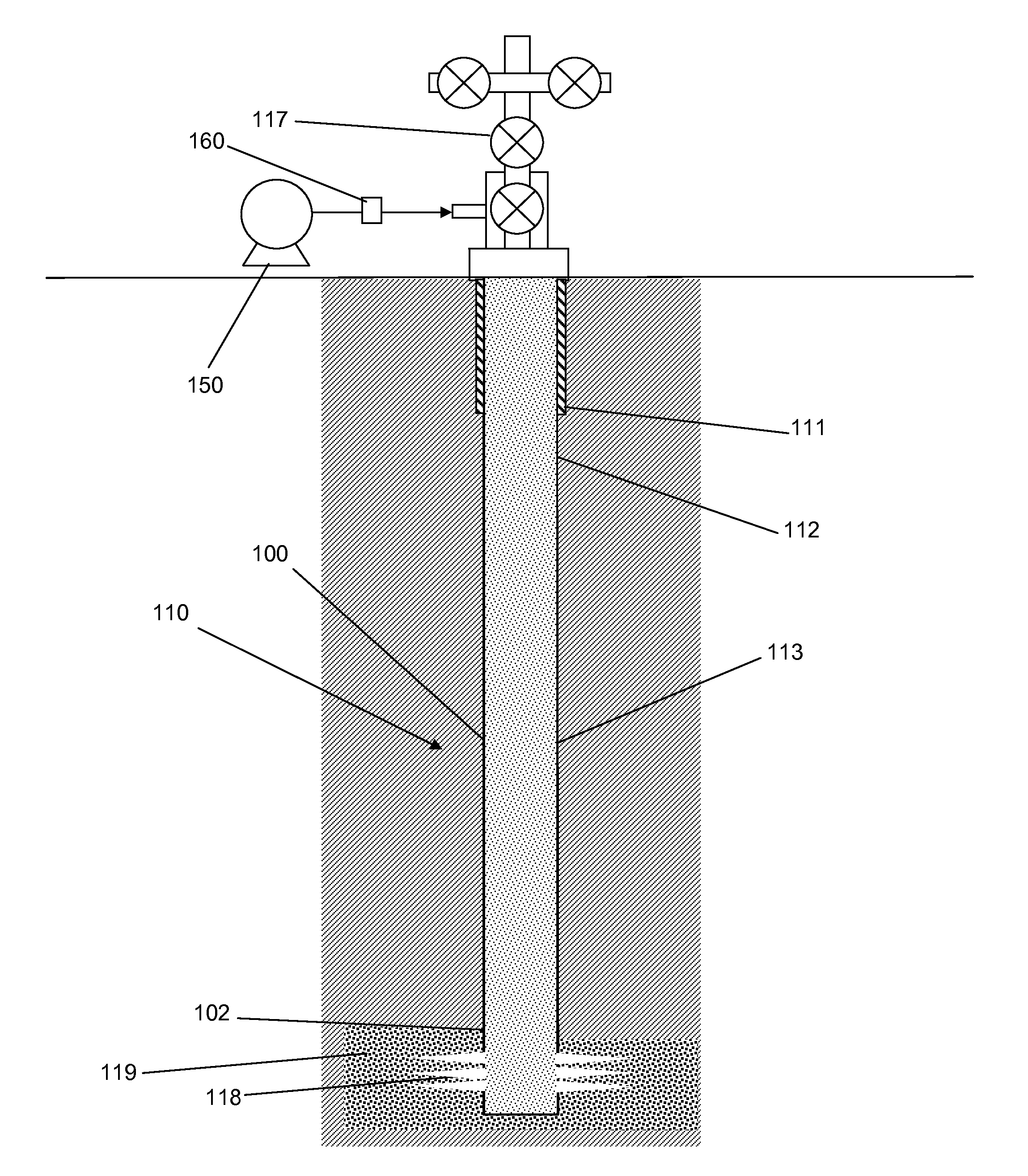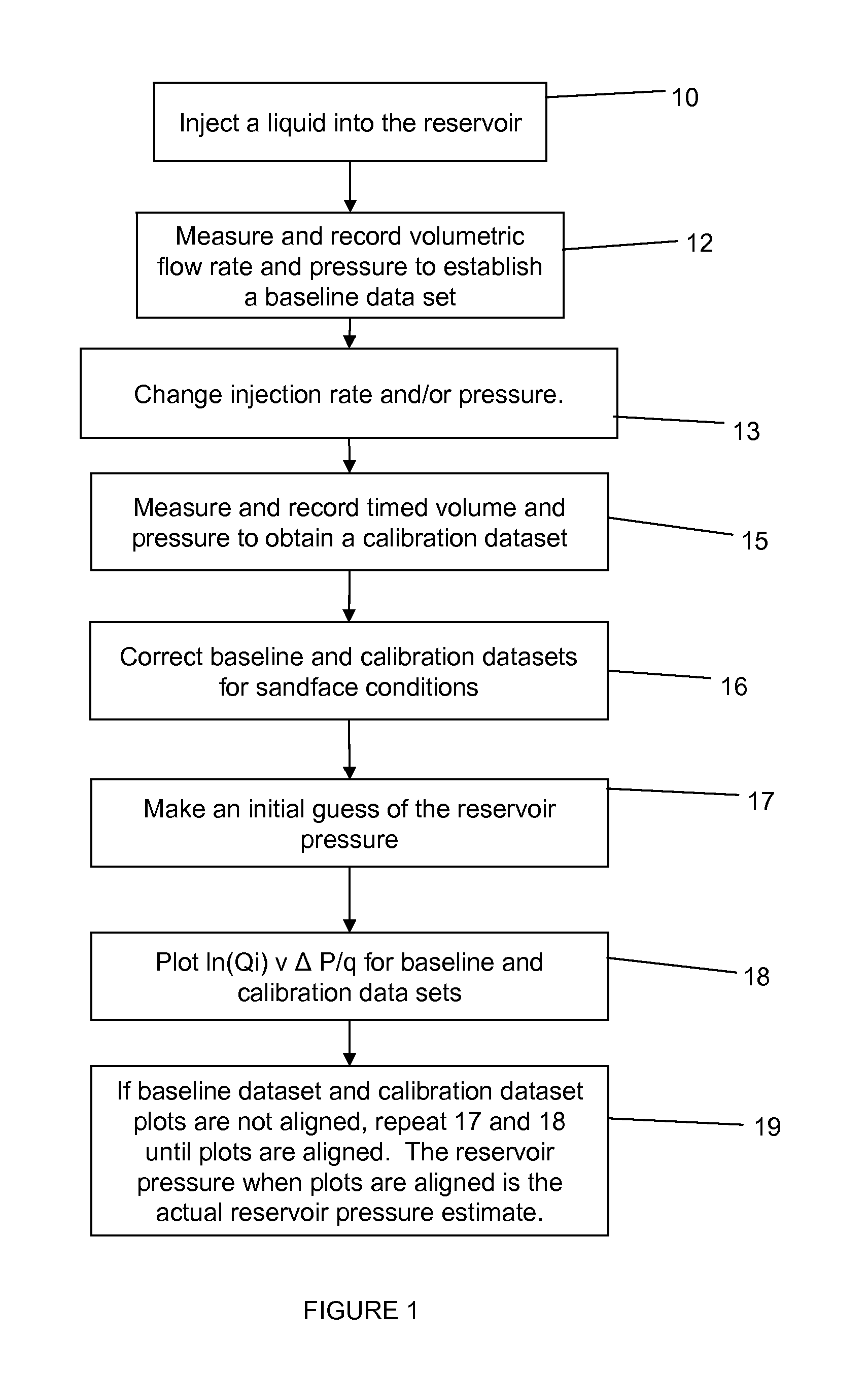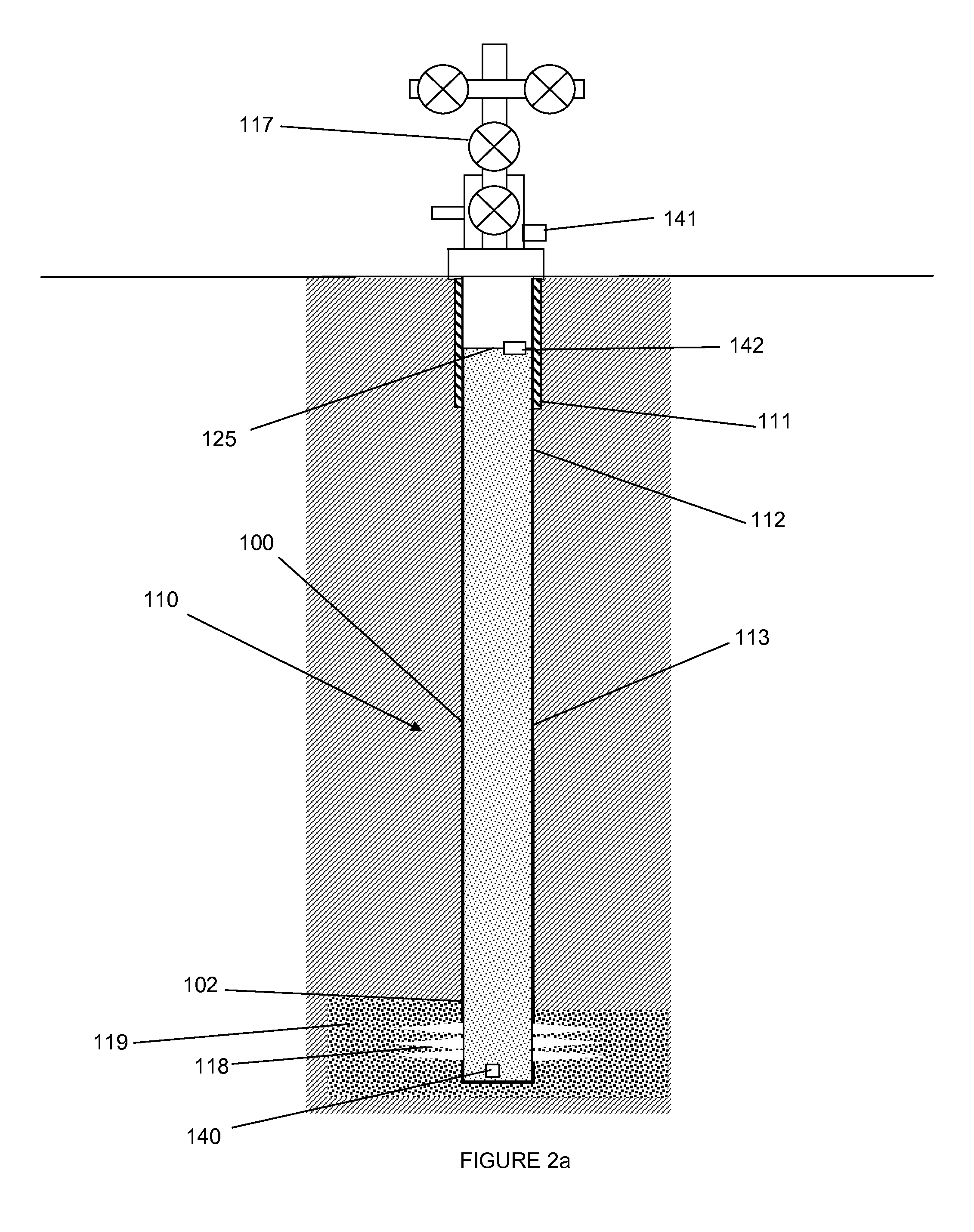Method of determining reservoir pressure
a reservoir pressure and reservoir technology, applied in the field of hydrocarbon exploration and production, can solve the problems of limited injection rate/volume, careful measurement of pumping volumes, etc., and achieve the effect of low permeability
- Summary
- Abstract
- Description
- Claims
- Application Information
AI Technical Summary
Benefits of technology
Problems solved by technology
Method used
Image
Examples
Embodiment Construction
[0030]FIG. 1 is a flowchart depicting an embodiment of a method for determining reservoir pressure. In an embodiment, the method preferably is applied to wells with a new isolated set of perforations 118 in a well has not begun hydrocarbon production. More particularly, fluid may be injected into the well and into the formation 119 in block 10, preferably prior to fracturing or other injection of material into the reservoir. However, it is envisioned that fluid may be injected at any time during the completion or production process into the reservoir. In one embodiment, the fluid injection rate may be limited to injection rates / volumes which minimize the creation of any hydraulic fracture length during the test. The fluid may be any suitable fluid such as without limitation, saline fluid, water, potassium chloride fluid, ionic fluid, non-ionic fluid, or combinations thereof. Gaseous fluids could also be used. All embodiments of the method include injection stages generated by discre...
PUM
 Login to View More
Login to View More Abstract
Description
Claims
Application Information
 Login to View More
Login to View More - R&D
- Intellectual Property
- Life Sciences
- Materials
- Tech Scout
- Unparalleled Data Quality
- Higher Quality Content
- 60% Fewer Hallucinations
Browse by: Latest US Patents, China's latest patents, Technical Efficacy Thesaurus, Application Domain, Technology Topic, Popular Technical Reports.
© 2025 PatSnap. All rights reserved.Legal|Privacy policy|Modern Slavery Act Transparency Statement|Sitemap|About US| Contact US: help@patsnap.com



